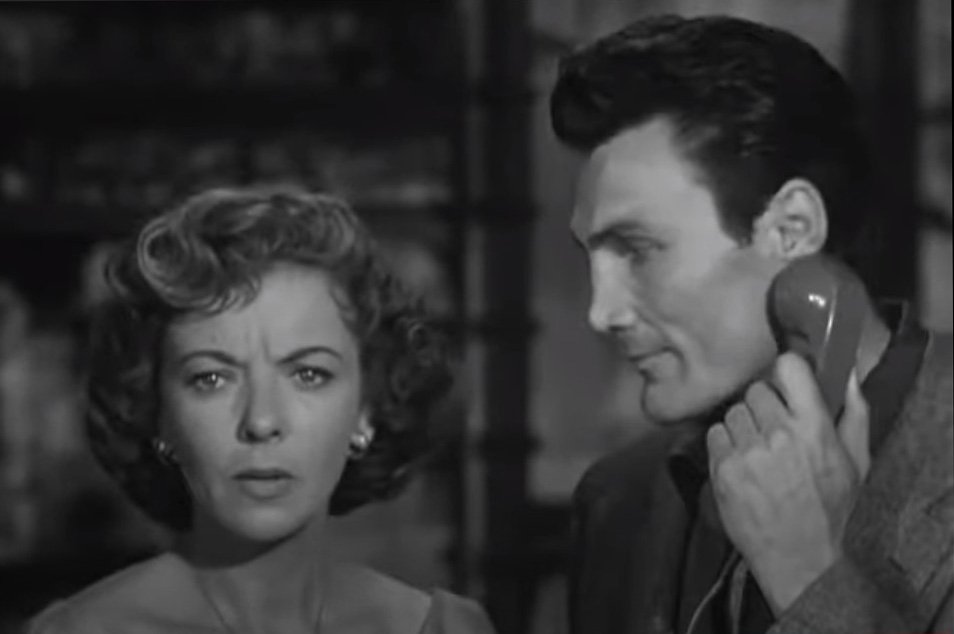
What a strange, baroque piece of film-making is this 1955 noir. Based on a play by Clifford Odets, The Big Knife wears its stage roots on its sleeve. Most of the action takes place in the Hollywood living room of Charlie Castle (Jack Palance), where Charlie, wife Marion (Ida Lupino), and Rod Steiger as malevolent movie studio boss Stanley Shriner Hoff, fight for survival like fish starved for air in a too-small fish bowl.
The movie revolves around Charlie’s moral dilemma. Misread by Hoff as a loutish hunk who can be blackmailed to serve the studio’s needs , Charlie is, we are supposed to believe, a subtle, tortured soul who longs to escape the bonds of his contrived Hollywood persona.
Charlie’s conflict with Hoff over his contract involves a lot of high-blown rhetoric which never really answers the question of why Charlie is so unwilling to continue being paid large sums of money for being a B movie actor, or what he would do otherwise.
An equally inexplicable conflict is the one between Charlie and wife Marion, who are nominally separated, but spend many long movie minutes talking and, in the process demonstrating that their connection is strong and true. Both stray, but with little enthusiasm for the act of adultery in general or for the partners they choose in particular.
The fact that the film is, essentially, “about” Charlie’s delicate moral sensibility makes it an interesting historical artifact, but Palance isn’t entirely convincing as the complex mix of contradictions that Odetts was apparently going for, instead relying on bursts of wild physicality and a portentuous delivery of his lines that, by making everything seem weighty, ultimately makes us incapable of taking anything very seriously.